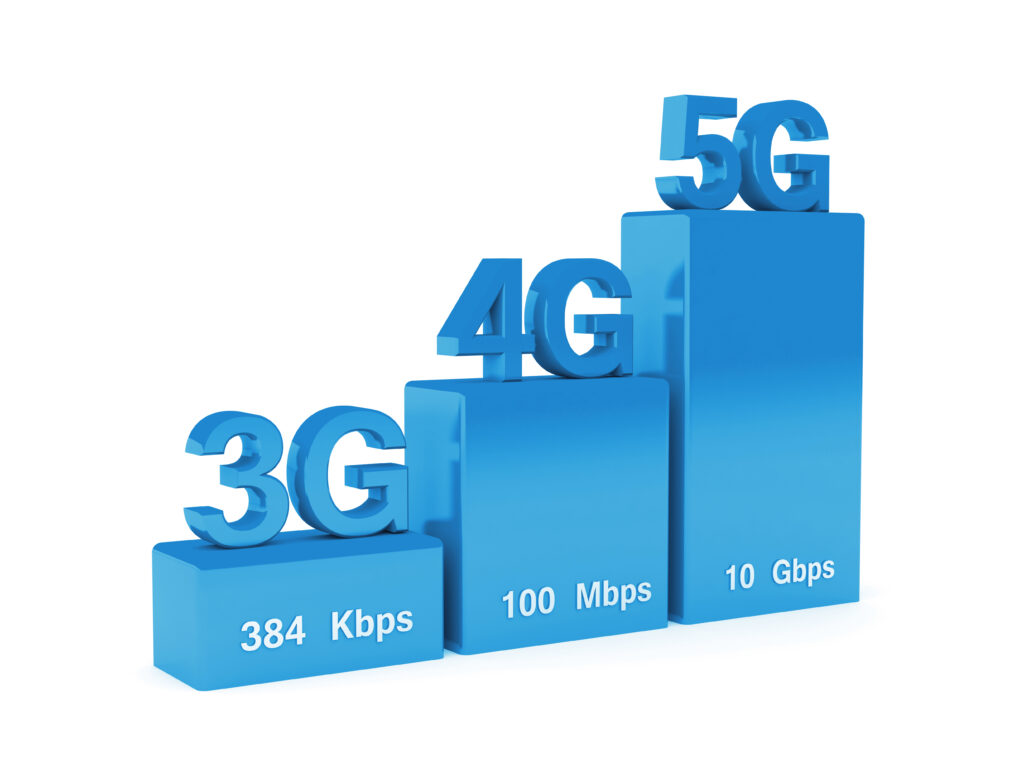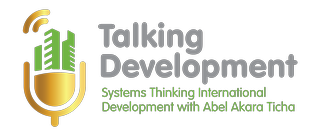By Abel Akara Ticha
No need for the chicken-and-egg debate about which should come first at the moment in Africa: basic infrastructure/amenities or the deployment of 5G broadband. Africa already has general sustainable development issues to grapple with, but the 5G promises to become the eye of the digital economy whirlwind which will pepper-up multiple sectors for sustainable development on the continent.
For those who can see clearly, the deployment of broadband, especially via this fifth generation of mobile technology and internet connectivity systems, will determine how fast and far Africa goes in compartments such as education, agriculture, manufacturing and smart urbanization. In a recent study labelled “Making 5G a reality for Africa,” the Council for Science and Industrial Research (CSIR) of South Africa and Ericsson contend that “over a 10-year period, more than 400 000 jobs can be created with over USD 8 billion contributed to a country’s GDP” as a result of a successful deployment of broadband, provided access is wide, costs are low, users are skilled enough and broadband suppliers are contextually innovative. According the GSM Association (GSMA), Sub-Saharan Africa raked-in USD 94 billion, which was equal to 5.6% of its GDP, in 2018, thanks to mobile connectivity. The confluence between mobile penetration and fast/reliable internet connectivity would therefore produce better results for the continent.
Although fears of increased radiation from 5G activity were expressed by many, especially with the clearly debunked conspiracy theories on an imagined causation between 5G installations and COVID-19, it is also scientifically argued that 5G radio transmission signals are not in the neighborhood of ionizing frequencies which are toxic to our body cells as is the case with X-rays, gamma rays and cosmic rays. A case of plus de peur que de mal, as the French would say, to mean too much worry but no real hurt.
If anything, the Trump Administration’s arm-wrestling of China’s Huawei to keep the tech giant out of the 5G space in the US and the apprehensions this has created in a more tolerant Europe is enough pointer to the high threshold of a 5G-world and the strategic importance of who supplies and controls it.
Africa should, thus, not stand agape as the technological big-bang happens. It should take active interest in, and get to work in earnest to make 5G work, as this latest development in our and Networked Society can help the continent finally leapfrog more organic stages of development.
Before I enumerate key reasons why Africa must take a plunge to the 5G ecosystem, let us unpack the concept.
So, what is 5G?
5G, short for the 5th Generation of mobile technology connectivity and network systems, is a revolution in internet bandwidth provision which handles data from 1 to 10 gigabits per second (gbps), making it up to 100 times faster than its predecessor – 4G Long Term Evolution (LTE) – which can only reach a capacity of 200-300 megabits per second (mbps) of connectivity on a good day. This hundred-fold data transmission improvement promises extremely low latency (as low as 1 millisecond compared with the 20-100 milliseconds of its predecessor – 4G). This means there is absolutely no time wasted from an internet click to the display of content it has to deliver from a webserver or other data host. No video buffering! Further, 5G, at its very beginning, will be able to cover 9 times more devices within the range of any broadband supply node, hence a geometrically higher density of coverage than 4G LTE. Welcome, therefore, to the true age of the Internet of Things (IoT), where everything is seamlessly connected to everything else, leading to a surge in productivity and unprecedented lifestyle changes.

So why must Africa hurry into the 5G ecosystem?
1. To increase States’ revenues
According to Ericsson, ICT players such as mobile network operators (MNO’s) in Africa will generate around 10.5 billion dollars by 2026 from supporting just key sectors as public transport, healthcare, public safety, manufacturing, energy & utilities, media & entertainment, and retail. Ericsson’s 2019 report titled ‘5G Business Potential Beyond Mobile Broadband’ projects that service providers in Africa and the middle East who remodel their businesses as both service providers and creators, will be able to cash in nearly 46 billion dollars in additional profit by 2030.
This is also good news for African States as increase in revenue for these players correlates with more tax harvests. And these projections, which seem rather conservative, do not compute the contributions from a sea of start-ups to develop on the continent around this technological jump. Remember Africa pioneered Mobile Money in the wake of 3G? No one saw it coming, so we can expect more.
2. To bypass costs to access great tech
The revolution in digital technology (Industry 4.0), is a well-known factor in the theories of leapfrogging development stages. Interestingly, Africa can stage an inner-layer leapfrogging process on the back of the leaping frog (high tech) itself, in the sense that it can benefit from the ecosystem without having borne the initial costs of setting it up or suffered from the expensive mistakes of pioneering, in order to make development strides (leapfrogging) across sectors. According to Deutsche Welle “tech optimists say 5G could allow Africa to access faster and more stable mobile internet without having to lay fiber optic cables that deliver high-speed broadband,” since just over 50 per cent of the continent’s people live within 25 km of a fiber network. Meanwhile, experts say countries already having good optic fiber coverage can also take advantage of them to help transport signals from 5G nodes to others (a process called backhauling).
While leading players including Qualcomm (USA), Huawei (China), Nokia (Finland), Ericsson (Sweden), Samsung (Korea) Verizon (USA), AT&T (USA), T-Mobile (Germany/USA), Sprint (USA) and ZTE (Hong Kong & Mainland China) did the preliminary work some years back, African companies can benefit from well negotiated partnerships for continental deployment, meaning they won’t have to over-disrupt their cash flow to set up 5G systems. Suh partnerships are already happening between ZTE and MTN in Uganda and Rain and Huawei in Lesotho and South Africa, where limited connectivity to the new generation of telephony has been pioneered.
3. To ramp-up manufacturing
After a rather inert decade of productivity, the Fourth Industrial Revolution is expected to generate up to $3.7 trillion in value to global manufacturing, says a 2015 McKinsey report titled “The Internet of Things: Mapping the Value Beyond the Hype.” In all of this, the rollout of 5G will be a great lever, but where will Africa’s manufacturing be without a calculated but swift strategy to fit in this new ecosystem? Ericsson and CSIR estimate that Africa will garner only about USD1.93 billion by 2026 through the digitization of manufacturing [certainly if the roll out of 5G is slow]. This figure looks insignificant when juxtaposed with the global projection by McKinsey above.
A series of recent editions of the UN Economic Commission for Africa’s (ECA’s) flagship knowledge product – the Economic Report on Africa (ERA) – has shown that Africa’s share in global manufacturing value addition is below 3%. As a matter of fact, the continent’s share of manufactured goods in its 2017 exports, according to the 2019 ERA, was just below 24% while its import of manufactured merchandise stood at over 70%.
This state of affairs makes it difficult for the continent to sustainably develop but it is expected that with the incentives for local production ushered-in by the African Continental Free Trade Area (AfCFTA), resource-based manufacturing will be jacked up, leading to solid regional value chains. One of the biggest pedals to make this happen is quick and reliable broadband, which 5G offers, which would power artificial intelligence, ease automation and prop productivity.
Valerian Linus Sanga, a young Tanzanian who heads SticLab, an innovative startup which transforms some of Dar es Salaam’s waste into 3D printer filaments tells me that 5G will be a game-changer for his firm, as “taking the example of a 3D printer Farm, it can both be controlled and monitored using IoT and sensory network in real time if 5G is enabled,” leading to much higher levels of productivity.
4. To benefit from big data
We are in an era where huge amounts and different types of data sets – from hash-tagged tweets about anti-government protests, via satellite records for weather patterns, through security scans in airports, via drone monitoring of farms to the computing of devices connected to a mobile network, all inform firms’ and governments’ decisions on planning and development responses. Big data is so important that it is an industry on its own. According to BearingPoint Institute, it will generate USD 10 billion in Africa alone by 2030.
With the rivers of data flowing everywhere, speed is of the essence to harvest, tame, use and store what is important. Efficient broadband, especially the type promised by 5G connectivity as well as its corresponding computational devices, will help Africa sort out its data which is crucial for its development.
This op-ed was first published by Digital Business Africa in March 2020 It has been slightly edited.

